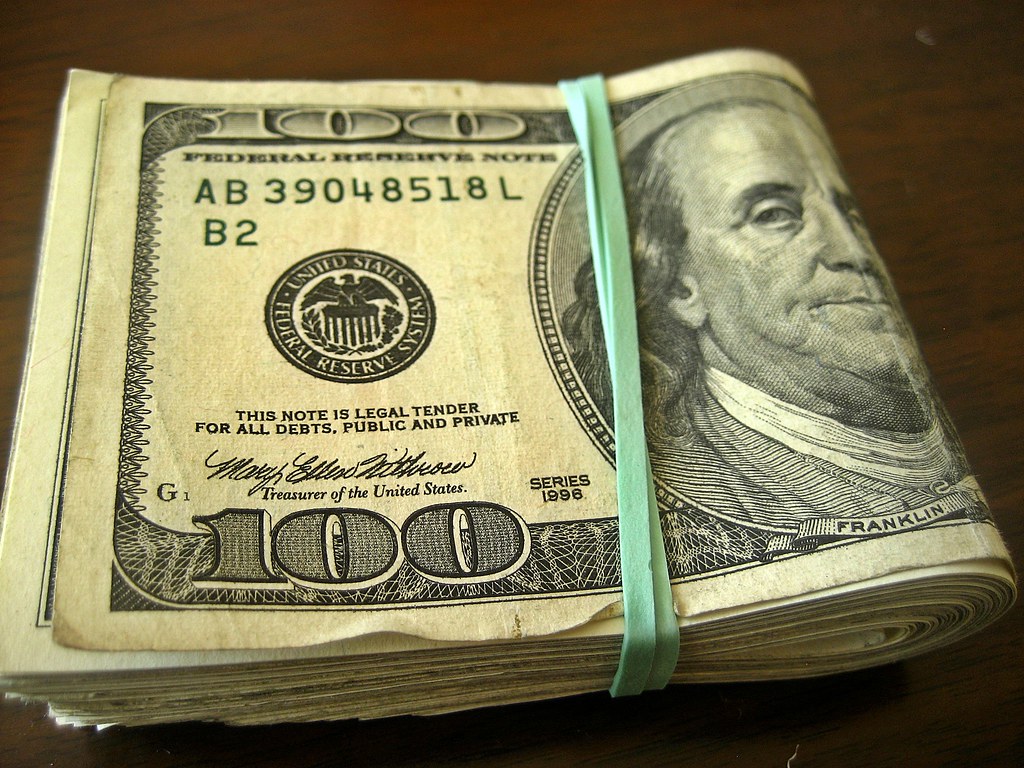
Wealthy
Once you get past the point where your debts are paid off and you’re saving money, it’s time to start looking at what to do with those savings. Having some cash in the bank is smart, it’ll protect you when things go wrong or when things don’t go as expected.
But setting aside money is just the beginning.
You see the “signs” of wealth everywhere. Cash flying out of hand into cars, clothes, jewelry, restaurants, bottle service… But you know better. These are all ‘consumables’. Things you buy once that either disappear, wear out, or shrink in value.
Some of these people that “look” rich might have money, but they’re not wealthy. They might even be in debt. You know this. What you may not know is that wealthy people don’t keep a much cash around.
Why is that?
In financial terms, cash is very “liquid”. That means it’s easy to move and to trade for things. It’s that speed and flexibility that is cash’s advantage. It’s disadvantage is that little by little, the cash becomes less valuable because of deflation. There’s a longer explanation why, but all you really need to understand is that every dollar is able to buy less year after year.
Wealthy people know this.
The Wealthy don’t keep a lot of cash around because they invest. They transform the thing that’s losing value into something that’s gaining value.
Investing means taking your cash and exchanging it for something that will give you income, or will appreciate in value, or both.
Income can be:
- Profits – Invest in your own business, the business makes you profit
- Interest – Loan your money to a person, business, or the Government, you get your original back plus a premium
- Dividends – You buy stocks in a big company, they give you some of their profits
Appreciation means you bought something that is likely to increase in value and price over the long term.
Buying a house to rent out is a good example. Renting out a house is a business. Every month it gives you profit, and down the road it can be sold for more than you bought it for. It gives you income, and it appreciates in value.
Buying a Government Bond (a loan to the Feds) gives you only income. Buying gold 10 years ago would have given you no income, but the selling price today is up in the stratosphere — it appreciated in value.
The term Accountants use to describe these things you exchange your cash for is ‘Assets’. The categories of assets are many: Real Estate, Stocks, Bonds, Precious Metals, and many others, each with their own levels of risk and reward. Assets are also what Accountants call things you buy for your business to increase your profits: computers, equipment, trucks, buildings…
Assets are used to generate more value, and create more assets. So your task is a simple one:
If you want to generate wealth, you must spend your life accumulating assets.
There’s no single path. Walk down the street and remember that every business you see is making someone wealthy – someone who probably isn’t any smarter than you. Some prefer investing in real estate. Some people use the stock market. Some collect all of these things.
Remember that the engine that drives all investments is compound interest. That requires two things, money you can pour in now, and the patience to let it multiply.
This applies to you as well. The simplest and the best place to start is investing in yourself. Learning how to manage your money and how to manage your emotions are key first steps to understanding any investment vehicle. To be able to invest in more wealth generating assets, a wise step is to invest in your ability to earn more money. The two most successful strategies for doing this are to gain valuable skills, or to build a business.
Self education is the biggest lever you can pull, no matter where you are now. Invest in yourself, invest in your assets, and wealth will follow.




There is truth in this post. I invested heavily in my tsp, i have a pension that is being match by my employer, my whole insurance is growing so in 20 years i can use it to supplement my income upon retirement. Then there there SS, if its still around.